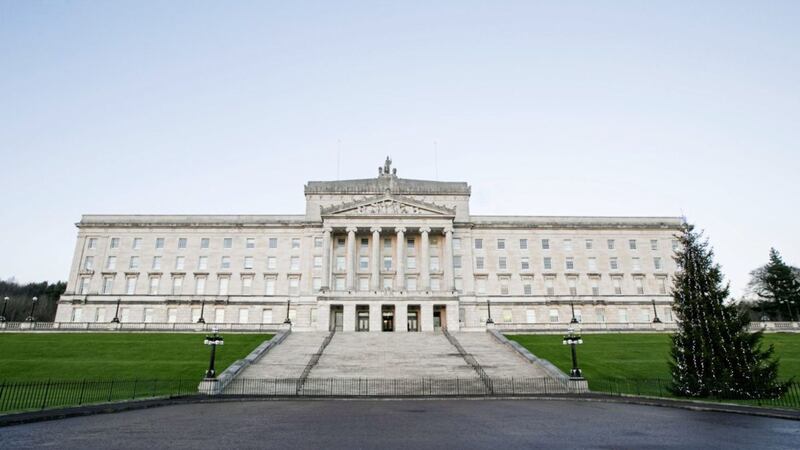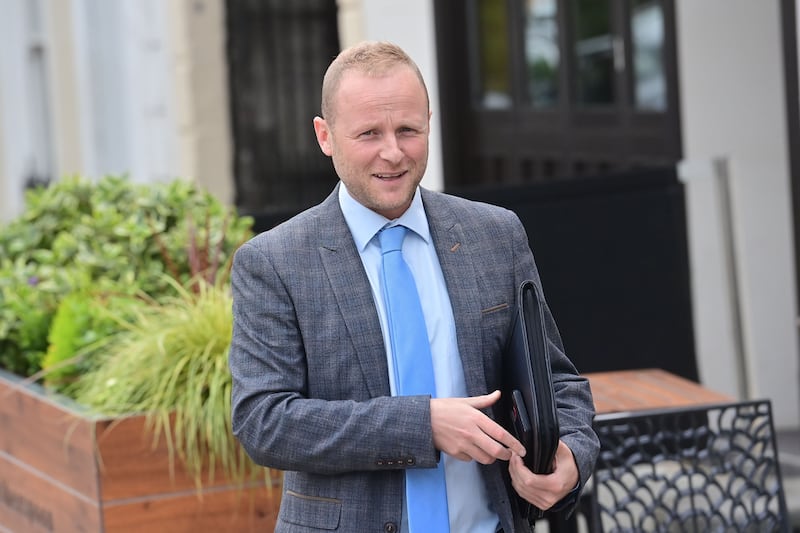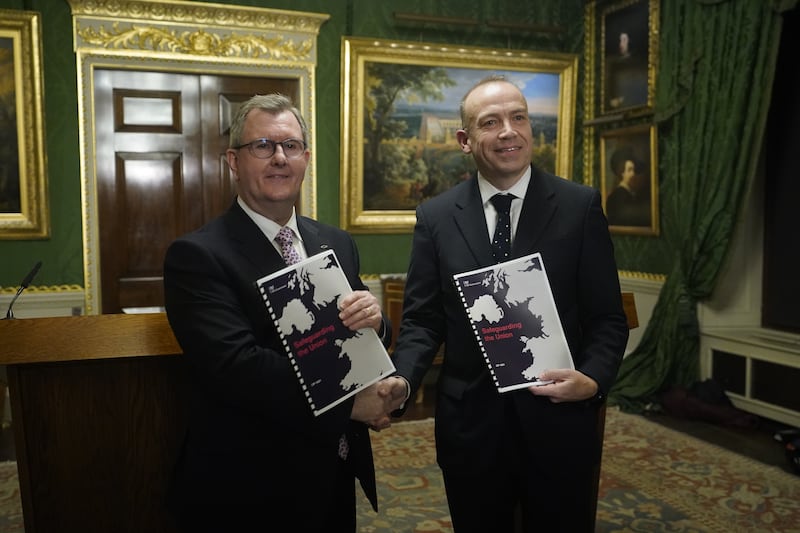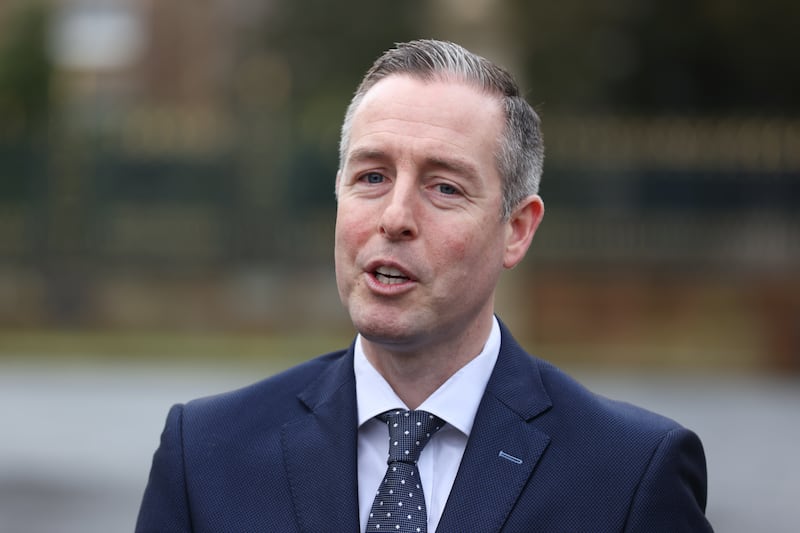BACK in June, as the wrangling over Paul Givan’s nomination for first minister threatened yet another crisis at Stormont, The Irish News reported how any showdown between the DUP and Sinn Féin was to be deferred until the autumn. Columnist Brian Feeney said he believed the parties would agree a "calender of operations" that would see "give and take on a range of issues” ahead of a post-dated deadline.
In the days that followed, the British government succumbed to Sinn Féin and thrashed out a deal over the Irish language, paving the way for Mr Givan to be sworn-in as first minister. This awkward choreography was among the numerous reasons why Edwin Poots’ leadership lasted the brief period it did. The short-lived DUP leader appeared to have placed personal ambition ahead of unionism’s immediate interests.
Sir Jeffrey Donaldson subsequently replaced the agriculture minister and a matter of weeks into his leadership tenure, played what he regarded as the best card at his disposal – the threat to collapse Stormont. The Lagan Valley MP chose to couple his concerns about the protocol with the commitment given by Brandon Lewis to legislate on Stormont’s cultural package agreed as part of last year’s New Decade New Approach, an agreement riddled with unfulfilled pledges.
His logic was that nationalists were being placated – albeit nearly 15 years after the original British government commitment on Acht na Gaeilge – while the east-west component of the Good Friday Agreement was being undermined by the Irish Sea border.
Sir Jeffrey’s end of October deadline for walking away from the institutions looks set to pass without incident, time having been bought for him by the British government and EU’s commitment to attempt to resolve concerns around the protocol – a process that could take us up to Christmas.
But meanwhile Secretary of State Brandon Lewis has signalled that he plans to honour his commitment on the cultural package, possibly within days. The DUP has been conspicuously quiet on the issue, possibly because Sir Jeffrey knows something the rest of us don’t, though more likely because he can only rattle his sabre so much before he must deliver the ultimate sanction – a gamble he is clearly reluctant to take for fear of the electoral consequences.
There are echoes of the DUP leader’s approach from Sinn Féin deputy first minister Michelle O’Neill, who despite being only too familiar with British government duplicity, has declined to countenance the potential for bringing down the institutions if Irish language legislation is not delivered by Westminster within weeks. She told The Irish News she was “not working on the basis of failure”, meaning there is presently no plan B.
It seems that for all the huffing, puffing and threats to blow the house down, neither the DUP or Sinn Féin will choose the nuclear option, as they know from the last time, that voters don’t like it. The Stormont executive may be one of the most dysfunctional administrations in the western world, overseeing lengthening waiting lists and an antiquated education system, but it at least it provides some accountability – or a clear target for public disgruntlement.
A farce it may be but the party that calls time on the devolved institutions would need to have banked a wealth of political capital. Expect plenty of sham fights in the coming weeks, with eyes firmly focused on next year’s election, but any threats about brining down Stormont are as empty as the public’s well of goodwill.
Read more:Sinn Féin responding to shifting dynamics north and south








